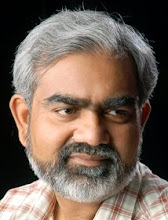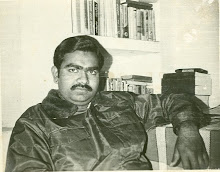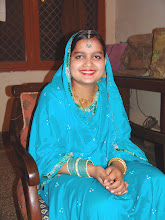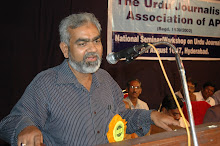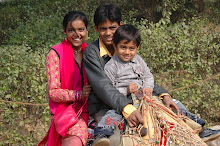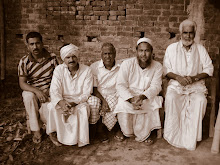
Planting Seeds of Peace
A New York-based nonprofit works to help youth from conflict zones promote coexistence and reconciliation.
By Anjum Naim
“Tensions and conflicts generated by wrong historiography have burnt us. Our mission is to find the truth in multiple truths.” This statement by Mahak Mansoor, a third-year student at King Edward Medical University in Lahore, Pakistan, might sound quite grand. But this is what Seeds of Peace, a New York-based nonprofit, has been doing since it was formed in 1993—helping young people from regions of conflict broaden their perspectives and learn how to coexist.
Mahak, 21, was one of the five participants from Pakistan who came to New Delhi in July to interact with six Indian “Seeds” in a workshop based on the theme, “How history is taught in India and Pakistan; history of South Asia and feminist version of history.”
Seeds of Peace is an autonomous, apolitical organization started by American journalist John Wallach to help young people from conflict zones learn the skills of making peace. From 46 Israeli, Palestinian and Egyptian teenagers in 1993, the network now encompasses nearly 4,000 young people from the Middle East, South Asia, Cyprus and the Balkans. The organization now focuses on the Middle East and South Asia.
The South Asia program with Indian and Pakistani youth was launched in 2001 with support from the U.S. State Department. Participants from diverse economic and religious backgrounds meet at the annual Seeds of Peace International Camp in the northeastern U.S. state of Maine. Interactions continue over the Internet, through speaker series in both countries, cross-border visits, conferences and workshops that teach the Seeds how to engage their communities and spread the message of reconciliation.
“India and Pakistan have fought several wars and generally the people of the two countries are hostile towards each other, and one of the major reasons for this is the history taught on either side of the border, which creates division and mutual hatred. Therefore, it is essential to correct where they are wrong and where we are wrong,” says Huzaifa Furniturewala, a student at Mumbai’s D.Y. Patil College of Engineering. He felt that the New Delhi camp “bore encouraging results.”
Krishna Kumar, director of the National Council of Education Research and Training; Anil Sethi, who writes books on education; and Urvashi Butalia, who teaches at Delhi University and is the author of The Other Side of Silence: Voices from the Partition of India discussed history books taught in India and Pakistan with the Seeds. They also talked about the possibility of finding similarity between multiple truths with a view to presenting a history free from biases and distortions.
Besides trying to understand the history of India and Pakistan objectively, the Seeds visited New Delhi’s famous historical places. “It was not strange for me to visit the tomb of Hazrat Nizamuddin Aulia; the strange thing was that Faryana Pardiwala was with us and a sense of…respect for the place was radiant on her face,” says Sana Zulfikar from Lahore.
Seeds of Peace works with the U.S. Consulates in India, representatives of city councils, community leaders, teachers and school administrators to choose participants. They are selected on the basis of an essay competition and interview. In some countries the participants are chosen by the ministries of education.
Each year, the three-week international camp on the shores of Pleasant Lake in Otisfield, Maine welcomes nearly 350 Afghan, American, Egyptian, Indian, Israeli, Jordanian, Pakistani and Palestinian participants. The youngsters live and play sports together and share meals. The daily coexistence sessions led by professional facilitators form the core of the summer program where the Seeds discuss contentious issues, share painful memories and confront their differences. The goal is to help the Seeds communicate effectively and understand perspectives that, for many, were once beyond comprehension.
“We exist in order to roll up our sleeves and get our hands dirty and make real peace in the real world. That is not an easy thing. We do not plant a tree and call it ‘Peace.’ We do not sing a song and join hands and call it ‘Peace’…,” Wallach said while accepting the International Advocate for Peace Award on behalf of Seeds of Peace in New York in 2002. “No, we believe that making peace is very hard and that making peace requires co-existence. Not necessarily liking one another, but agreeing to co-exist.”
The Seeds later visit each other’s countries for a week under a home-stay program. This gives them a chance to interact with the families and friends of their hosts. “When I first went to Pakistan in 2005 to participate in a week-long camp, I had an utterly misinformed opinion about girls in Pakistan,” says Teju Jhaveri, a student at the department of fine arts, University of Mumbai. She expected Pakistani girls to be very conservative, clad in hijabs, with no voice of their own. But “they were very much like me, I shared both their pain and ecstasy,” she says. “Seeds of Peace really showed us the power of friendship to change the conflict of thinking.”
The idea for Seeds of Peace came to Wallach after the 1993 terrorist bombing of the World Trade Center in New York City. “I was still a journalist and it was February 1993, and I asked myself a very simple question: What are the terrorists trying to do? The answer was very simple. They were trying to instill fear,” Wallach said in his peace award speech. “Was there something that could be done to counter this? It seemed to me that what we had to do was to come up with something that would inspire hope. If terrorists are trying to instill fear, if we inspire hope by mobilizing the majority, we could make a dent in achieving greater justice in the world.”
At a dinner party in Washington, D.C., attended by Israeli, Egyptian and Palestinian leaders, Wallach stood up and asked whether they were willing to send 15 youngsters each to a summer camp in Maine. The aim was to dispel fear, mistrust and prejudice through dialogue. The next day, Wallach announced at a news conference that all three countries had agreed.
The first Seeds were guests of President Bill Clinton at the signing of the 1993 Oslo Accords between Israeli Prime Minister Yitzhak Rabin and Chairman of the Palestine Liberation Organization Yasser Arafat on the White House lawn.
Initially launched with financial assistance from Wallach’s friends, Seeds of Peace attracted support from various quarters as it expanded its reach. The U.S. State Department supports the South Asia program while USAID funds a significant portion of the Middle East program. Other funding partners include Carlson Wagonlit Travel, oil and gas company Exxon Mobil Corporation, and luxury home builder Toll Brothers.
Wallach died in 2002 and the organization is currently headed by Executive Director Leslie Lewin. It has regional offices in Amman, Cairo, Gaza, Jerusalem, Kabul, Lahore, Mumbai, Ramallah, Tel Aviv and Washington.
Besides its international programs, Seeds of Peace runs a domestic program called Maine Seeds to address ethnic and racial tensions between communities settled in Maine and a cultural exchange program between American and Arab youths. But the focus remains on bridging differences in traditional regions of conflict.
When Sana Zulfikar was passing by the well at the tomb of Hazrat Nizamuddin Aulia with Faryana Pardiwala in New Delhi, she remembered what an Israeli Seed had said at the international camp: “Teachers at my school asked us to say the first word that crosses our mind when we hear the word ‘Palestinian.’ Some said terrorists. Some said neighbours. I said ‘friends.”
A New York-based nonprofit works to help youth from conflict zones promote coexistence and reconciliation.
By Anjum Naim
“Tensions and conflicts generated by wrong historiography have burnt us. Our mission is to find the truth in multiple truths.” This statement by Mahak Mansoor, a third-year student at King Edward Medical University in Lahore, Pakistan, might sound quite grand. But this is what Seeds of Peace, a New York-based nonprofit, has been doing since it was formed in 1993—helping young people from regions of conflict broaden their perspectives and learn how to coexist.
Mahak, 21, was one of the five participants from Pakistan who came to New Delhi in July to interact with six Indian “Seeds” in a workshop based on the theme, “How history is taught in India and Pakistan; history of South Asia and feminist version of history.”
Seeds of Peace is an autonomous, apolitical organization started by American journalist John Wallach to help young people from conflict zones learn the skills of making peace. From 46 Israeli, Palestinian and Egyptian teenagers in 1993, the network now encompasses nearly 4,000 young people from the Middle East, South Asia, Cyprus and the Balkans. The organization now focuses on the Middle East and South Asia.
The South Asia program with Indian and Pakistani youth was launched in 2001 with support from the U.S. State Department. Participants from diverse economic and religious backgrounds meet at the annual Seeds of Peace International Camp in the northeastern U.S. state of Maine. Interactions continue over the Internet, through speaker series in both countries, cross-border visits, conferences and workshops that teach the Seeds how to engage their communities and spread the message of reconciliation.
“India and Pakistan have fought several wars and generally the people of the two countries are hostile towards each other, and one of the major reasons for this is the history taught on either side of the border, which creates division and mutual hatred. Therefore, it is essential to correct where they are wrong and where we are wrong,” says Huzaifa Furniturewala, a student at Mumbai’s D.Y. Patil College of Engineering. He felt that the New Delhi camp “bore encouraging results.”
Krishna Kumar, director of the National Council of Education Research and Training; Anil Sethi, who writes books on education; and Urvashi Butalia, who teaches at Delhi University and is the author of The Other Side of Silence: Voices from the Partition of India discussed history books taught in India and Pakistan with the Seeds. They also talked about the possibility of finding similarity between multiple truths with a view to presenting a history free from biases and distortions.
Besides trying to understand the history of India and Pakistan objectively, the Seeds visited New Delhi’s famous historical places. “It was not strange for me to visit the tomb of Hazrat Nizamuddin Aulia; the strange thing was that Faryana Pardiwala was with us and a sense of…respect for the place was radiant on her face,” says Sana Zulfikar from Lahore.
Seeds of Peace works with the U.S. Consulates in India, representatives of city councils, community leaders, teachers and school administrators to choose participants. They are selected on the basis of an essay competition and interview. In some countries the participants are chosen by the ministries of education.
Each year, the three-week international camp on the shores of Pleasant Lake in Otisfield, Maine welcomes nearly 350 Afghan, American, Egyptian, Indian, Israeli, Jordanian, Pakistani and Palestinian participants. The youngsters live and play sports together and share meals. The daily coexistence sessions led by professional facilitators form the core of the summer program where the Seeds discuss contentious issues, share painful memories and confront their differences. The goal is to help the Seeds communicate effectively and understand perspectives that, for many, were once beyond comprehension.
“We exist in order to roll up our sleeves and get our hands dirty and make real peace in the real world. That is not an easy thing. We do not plant a tree and call it ‘Peace.’ We do not sing a song and join hands and call it ‘Peace’…,” Wallach said while accepting the International Advocate for Peace Award on behalf of Seeds of Peace in New York in 2002. “No, we believe that making peace is very hard and that making peace requires co-existence. Not necessarily liking one another, but agreeing to co-exist.”
The Seeds later visit each other’s countries for a week under a home-stay program. This gives them a chance to interact with the families and friends of their hosts. “When I first went to Pakistan in 2005 to participate in a week-long camp, I had an utterly misinformed opinion about girls in Pakistan,” says Teju Jhaveri, a student at the department of fine arts, University of Mumbai. She expected Pakistani girls to be very conservative, clad in hijabs, with no voice of their own. But “they were very much like me, I shared both their pain and ecstasy,” she says. “Seeds of Peace really showed us the power of friendship to change the conflict of thinking.”
The idea for Seeds of Peace came to Wallach after the 1993 terrorist bombing of the World Trade Center in New York City. “I was still a journalist and it was February 1993, and I asked myself a very simple question: What are the terrorists trying to do? The answer was very simple. They were trying to instill fear,” Wallach said in his peace award speech. “Was there something that could be done to counter this? It seemed to me that what we had to do was to come up with something that would inspire hope. If terrorists are trying to instill fear, if we inspire hope by mobilizing the majority, we could make a dent in achieving greater justice in the world.”
At a dinner party in Washington, D.C., attended by Israeli, Egyptian and Palestinian leaders, Wallach stood up and asked whether they were willing to send 15 youngsters each to a summer camp in Maine. The aim was to dispel fear, mistrust and prejudice through dialogue. The next day, Wallach announced at a news conference that all three countries had agreed.
The first Seeds were guests of President Bill Clinton at the signing of the 1993 Oslo Accords between Israeli Prime Minister Yitzhak Rabin and Chairman of the Palestine Liberation Organization Yasser Arafat on the White House lawn.
Initially launched with financial assistance from Wallach’s friends, Seeds of Peace attracted support from various quarters as it expanded its reach. The U.S. State Department supports the South Asia program while USAID funds a significant portion of the Middle East program. Other funding partners include Carlson Wagonlit Travel, oil and gas company Exxon Mobil Corporation, and luxury home builder Toll Brothers.
Wallach died in 2002 and the organization is currently headed by Executive Director Leslie Lewin. It has regional offices in Amman, Cairo, Gaza, Jerusalem, Kabul, Lahore, Mumbai, Ramallah, Tel Aviv and Washington.
Besides its international programs, Seeds of Peace runs a domestic program called Maine Seeds to address ethnic and racial tensions between communities settled in Maine and a cultural exchange program between American and Arab youths. But the focus remains on bridging differences in traditional regions of conflict.
When Sana Zulfikar was passing by the well at the tomb of Hazrat Nizamuddin Aulia with Faryana Pardiwala in New Delhi, she remembered what an Israeli Seed had said at the international camp: “Teachers at my school asked us to say the first word that crosses our mind when we hear the word ‘Palestinian.’ Some said terrorists. Some said neighbours. I said ‘friends.”

